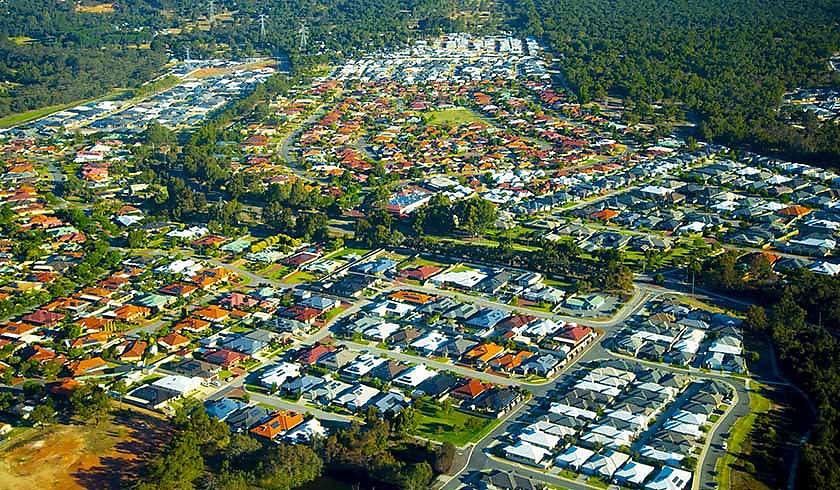Australian dwelling price growth uninterrupted for 7 quarters
Despite slow growth, national dwelling prices continued to increase in the December quarter, marking the longest period of uninterrupted quarterly growth since 2012–15.

Domain’s latest House Price Report showed that despite annual property prices growing at their slowest pace since September 2023, houses in capital cities reached their eighth consecutive quarter of growth in December, while units reached seven.
Australia’s more affordable capital cities, Perth, Adelaide and Brisbane, ended 2024 with record-high annual house prices with 19.5 per cent, 14.6 per cent and 10.9 per cent growth, respectively.
Houses in Brisbane have reached a median price of $1 million for the first time, while Adelaide and Perth are set to break the million-dollar median in 2025.
The three top-performing cities also set records for unit prices, with Perth’s annual median unit price growing by 28.2 per cent in 2024, Brisbane by 18.1 per cent, and Adelaide by 13.6 per cent.
Units in Brisbane reached the highest price tag of the new hotspots at $632,644, while Adelaide units topped at $541,573, and Perth’s median unit price reached $511,119.
Conversely, Canberra and Hobart saw their median unit prices decline in 2024, with a 5.3 per cent and 4.4 per cent drop, respectively.
Despite the year-on-year performances nationwide, both house and unit median prices grew slowly over the December quarter.
The best-performing area for houses in the December quarter was Hobart, where the median house prices increased by 4.6 per cent to $712,851.
On the other hand, Sydney was the only capital city to record a decline over the December quarter, with house median prices dropping by 0.1 per cent, which represents $1,300.
This marks the second consecutive quarterly decrease for Sydney, the first occurrence in two years.
Regardless of the drop, Sydney’s median house prices remained the highest in the country at $1,645,444.
In the December 2024 quarter, Melbourne’s house prices gained momentum, increasing by nearly $16,000 to $1.039 million, representing a 1.6 per cent quarterly growth – the first quarterly gain in a year and the largest in three years.
The report noted that this is the first time in four years that Melbourne has recorded a higher quarterly growth rate than Sydney.
On the east coast, while Brisbane joined the million-dollar club in 2024, the city house price growth lost momentum, with quarterly growth more than halving compared to the same period in the previous year.
For units, Perth saw the highest growth in the December 2024 quarter at 5.4 per cent, while the remaining capital cities oscillated between 0.4 per cent and 4.4 per cent.
Over the same period, Brisbane unit prices rose by 1.8 per cent, ranking the city as the second most expensive nationwide for units.
Hobart was the only capital city to experience a decline in unit prices during the December quarter, while Canberra remained flat.
Domain’s chief of research and economics, Dr Nicola Powell, said the data showed that affordability issues, rising living costs, and limited borrowing power have slowed the market nationwide.
“The market is finally catching up to the financial pressure many buyers have been facing,” Powell said.
“At the moment, many potential buyers are holding off, hoping for a cash rate cut to improve their borrowing power. As demand decreases and more homes come onto the market, we’re seeing a shift in dynamics that can’t be ignored.”
Powell noted that in December, the market saw the highest number of homes for sale in the combined capitals in three years, which gave buyers room to negotiate.
“Overall, the market seems to be moving towards a buyers’ market, which could offer better conditions for those looking to purchase property this year,” Powell concluded.
